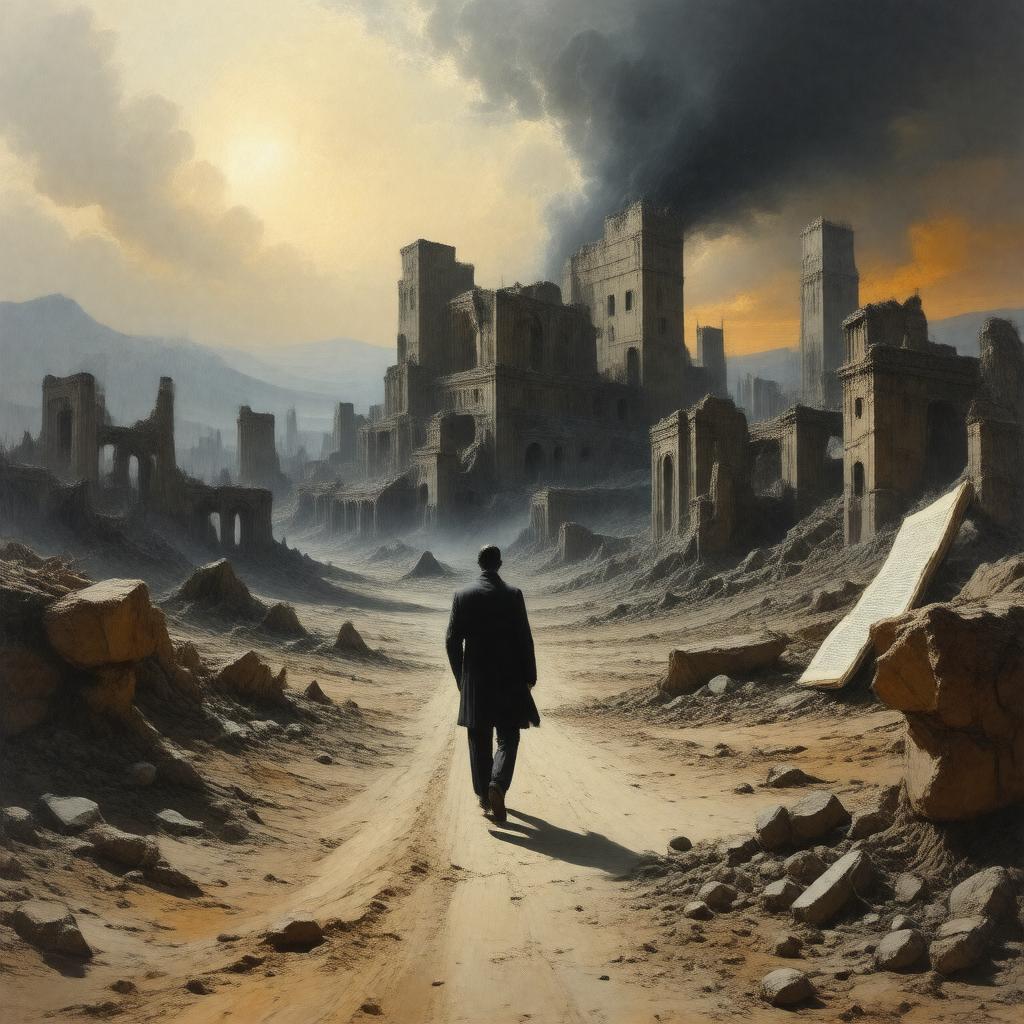Prompt
"Create an image of a desolate, post-apocalyptic landscape with ruins of a once-great city in the background, representing the themes of spiritual desolation, disillusionment, and fragmentation in T.S. Eliot's modernist masterpiece, The Waste Land. In the foreground, a lone figure, shrouded in shadows, walks away from the ruins, symbolizing the search for meaning and regeneration in a barren world. Incorporate subtle allusions to mythology, such as a faint image of the Holy Grail in the distance, and literary references, like a torn page from Dante's Divine Comedy or a broken lyre, to reflect the poem's rich intertextuality. The color palette should be muted, with shades of gray, brown, and beige, evoking a sense of decay and despair, yet hinting at the possibility of renewal and transformation."

